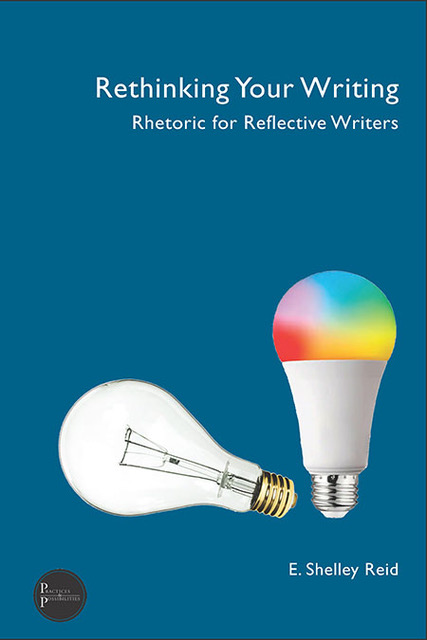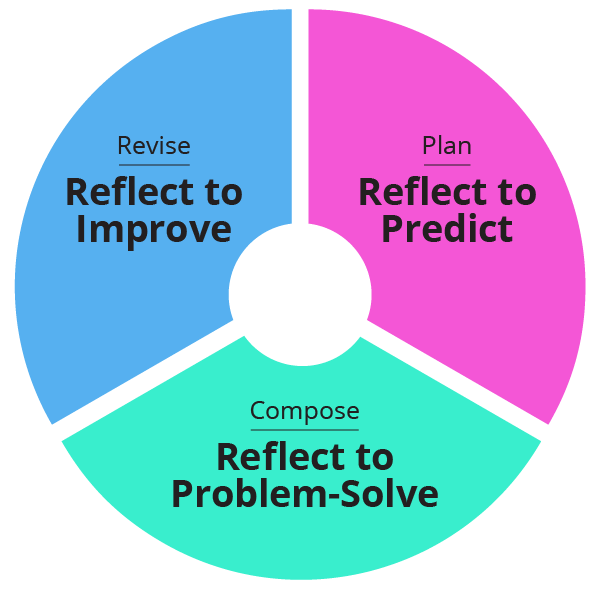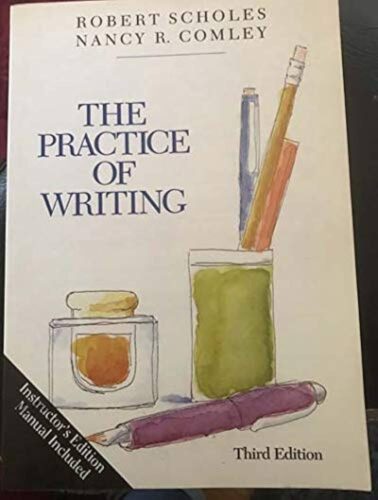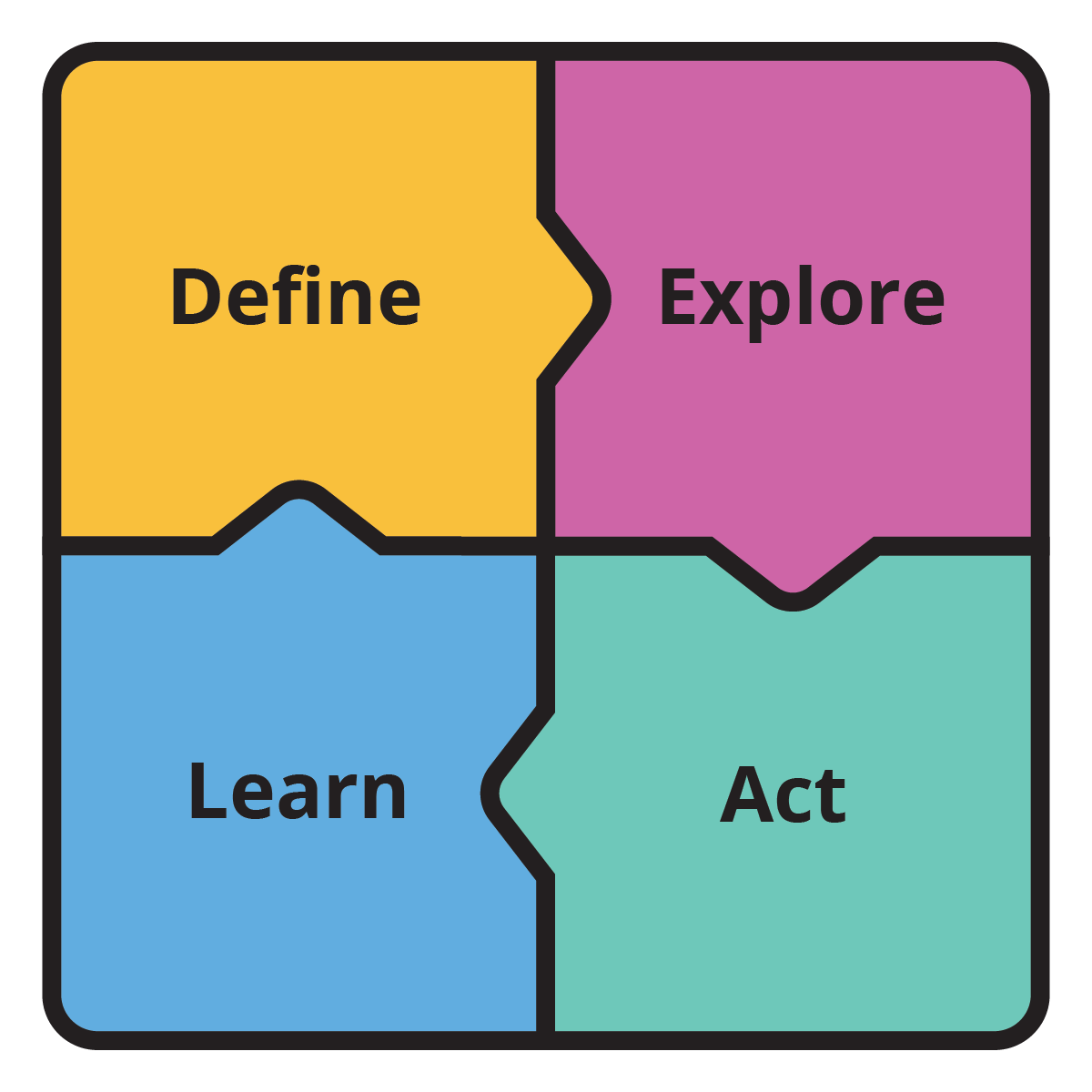College Educators
Rethink the Typical Writing Textbook
An integrated, open-access student guide to rhetorical and reflective writing strategies from veteran writing professor, author, and faculty educator E. Shelley Reid


About “rethinkIng”
A Fresh, Flexible Approach to Effective Writing
This open-access digital textbook draws on the latest research and teaching methodology to guide students through a reflective, rhetorically situated writing process. Inside, you’ll find:
- Modular, cross-linked design that helps students and instructors find the support they need
- In-depth, student-friendly chapters on threshold concepts, reflective practice, rhetorical analysis, peer review and revision, research, & critical reading
- Integrated emphasis on how writers assess contexts and select strategies, genres, and tools
- Model assignments on Explaining, Analyzing, Arguing, and Writing for Change that support multiple writing purposes
- Over 70 innovative writing exercises, from “Elevator Speech” and “Genre Switch” to “Letter to Kermit” and “Rate My Source”
WAC Clearinghouse is an open-access publishing collaborative dedicated to providing barrier- and cost-free access to scholarly work.
Work With Shelley
Redefine Writing & How We Teach it
E. Shelley Reid is an Associate Professor of English and the Executive Director of the Stearns Center for Teaching and Learning at George Mason University. Her work on teacher preparation, mentoring, and writing education has appeared in publications like College Composition and Communication, Writing Program Administration, and Writing Spaces, among others. Shelley works regularly with faculty on course design and assignment creation, innovative and inclusive teaching practices, creating a feedback-rich classroom, and strategies for engaging students across modalities and disciplines. She has presented nationally on strategies related to reflection and metacognition, peer review and revision, transfer of learning, threshold concepts, writers’ dispositions, and new instructor preparation.
Click below to learn more about working with Shelley:
Excerpts from “ReTHINKING”
Level Up the Way You Think, Write, & Teach
Rethinking Your Writing is a versatile guide that can be tailored to the needs of almost any course or classroom. Whether you select one short module to supplement your current resources or use the text throughout your course, this book is designed to help you engage your students and deepen their understanding of how writers learn and succeed in school, their careers, and beyond.
“
The phrase “writer’s block” is commonly used to describe the feeling of getting stuck as a writer, but it’s not a very helpful concept for advanced writers. Imagine someone saying, “I’ve got plumber’s block” or “I’ve got nurse’s block” or “I’ve got lawyer’s block”! In these and most other professions, experts face problems, get stuck, explore their resources and constraints, and create a solution, just as you can do with your writing.
Reframing Your Story About Writing
“
To build a productive habit of reflective practice, you need to develop strategies that bring you insights rather than only stating obvious facts. If you haven’t used metacognitive strategies much before, you may find it helpful to use a “DEAL and Delve” approach to help you learn about and improve your writing in ways that you find valuable. To begin, you can Define the situation, Explore the opportunities, Act based on the choices you just made, and Learn from your experience.
Reflecting Throughout Your Writing Process
“
You may need to “practice praise.” Writers are often trained to be specific in criticism but find that it’s harder to explain our praise. You can learn to say exactly what you enjoy or admire and why, so that writers know you see the heavy lifting they are doing: one good model is “I like the way you use [writing strategy] here, because ____.” Specific praise helps writers replicate their best work elsewhere in their writing, and it helps you gain expertise from what other writers do well.
Reviewing a Written Draft
instructor Resource Posts
Instructor Resources for Rethinking
-
Rethink the roles of affect and metacognition in learning writing I came to the “habits of mind” table late, reluctantly, skeptically, slowly, and perhaps still….
-
Rethink your assignments My first composition textbook as a new graduate teaching assistant was state-of-the-art—and a significant mismatch for the way I wanted to teach…..
-
Rethink the “post-script” as the model for reflection The fourth writing program that I taught in was at a school that required every class to….
Stay Connected
Bring Shelley to your campus, classroom, or conference, or work with her as a higher-ed consultant on other academic projects.



